In the world of Formula 1, the sport often demands much more than just speed and skill. It demands sacrifice, resilience, and sometimes the ability to navigate through grief. When Ayrton Senna tragically passed away during the 1994 San Marino Grand Prix, the impact on his fellow drivers was profound, especially on Michael Schumacher, who was just beginning to rise as one of the sport’s most formidable talents.
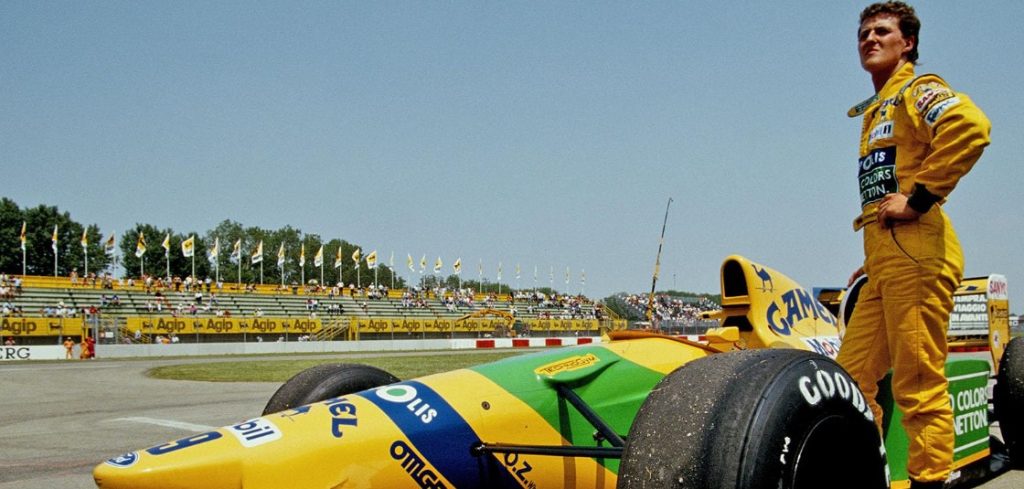
True, Senna was the leader of his generation—driven, competitive, and intensely passionate. Schumacher, a young upstart, was beginning to challenge Senna’s dominance on the track, but the latter’s loss left him questioning the very purpose of racing.
However, why didn’t Schumacher, who admired Senna both as a rival and a driver, attend his funeral? The answer is more complicated than one might think!
Ayrton Senna’s Legacy, Talent, & Unmatched Accomplishments
Ayrton Senna was much more than a Formula 1 driver—he was a symbol of excellence. Born on March 21, 1960, in São Paulo, Brazil, Senna quickly rose through the ranks of motorsport, achieving what many would consider impossible. He captured three World Championships (1988, 1990, 1991) and won 41 Grand Prix races during his career.
Senna’s raw talent behind the wheel was beyond compare, but it was his hunger for perfection and unrelenting drive that truly set him apart. He wasn’t just in it for the wins—he lived and breathed racing. His fiery passion made him a hero not just on the circuits, but in his home country of Brazil, where he became a symbol of national pride.
Known for his blistering qualifying speed and his uncanny ability to drive at the limit, Senna was a force of nature. But it was his performances on the wet track that truly separated him from the rest of the pack. Whether it was the 1984 Monaco Grand Prix, the 1985 Portuguese Grand Prix, or the 1993 European Grand Prix, Senna showed the world that he could rise to the occasion when conditions were far from ideal. His record of six wins at Monaco is still the stuff of legends.
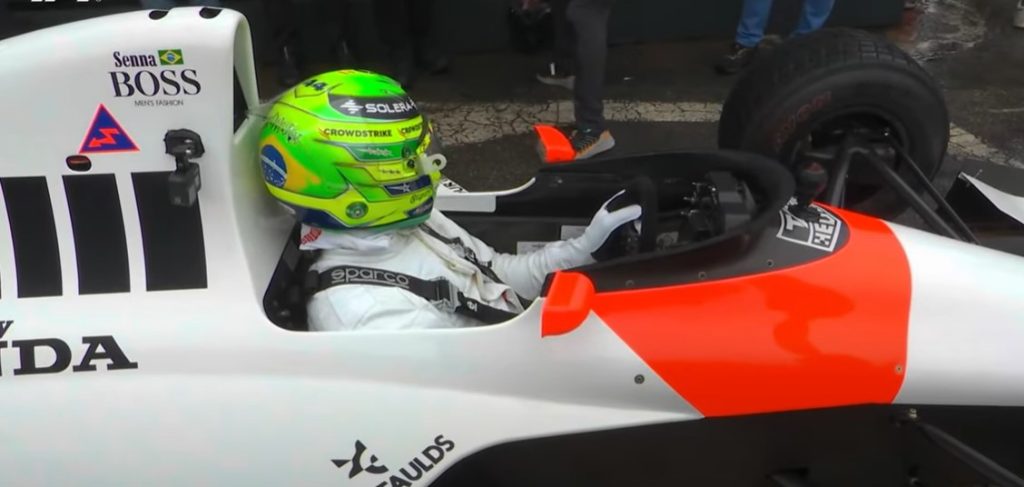
Senna didn’t just rack up wins—he made history. Each moment on the track felt like a chess match, with the late Brazilian racing driver always looking for an edge, always playing to win. It was in these moments that Senna’s legendary tenacity truly shone.
In a world where drivers often fade into obscurity, Senna’s legacy continues to stand tall—undefeated, unyielding, and unforgettable.
Michael Schumacher’s Rising Star Amidst Tragedy
In 1994, Michael Schumacher was on the rise. He is widely regarded as one of the greatest drivers in Formula 1 history, with a career filled with unprecedented achievements.
He secured seven World Championships—two with Benetton in 1994 and 1995, and five consecutive titles with Ferrari from 2000 to 2004, solidifying his dominance in the sport. With 91 Grand Prix wins, Schumacher held the record for the most victories until Lewis Hamilton surpassed it in 2020, showcasing his ability to win in all conditions and against fierce competition.
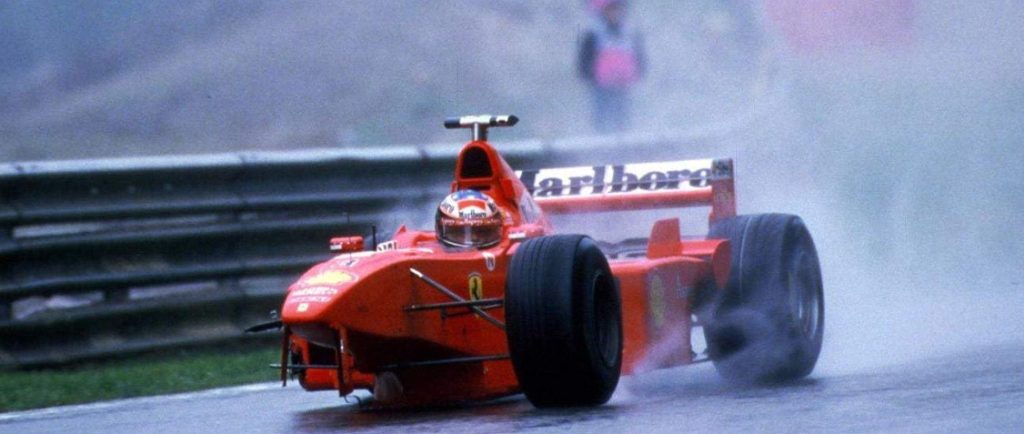
His skill wasn’t limited to race wins; he also set records for fastest laps (77) and pole positions (68) at the time of his retirement in 2006, highlighting his versatility and precision. Schumacher’s unparalleled talent and work ethic not only made him a legend but also set new benchmarks for excellence in Formula 1.
Why Michael Schumacher Did Not Attend Ayrton Senna’s Funeral?
There’s a saying that grief is love with no place to go. It’s a force so powerful that it can leave even the strongest of us questioning our purpose in life, our next steps, and our deepest beliefs. Michael Schumacher, one of Formula 1’s greatest drivers, found himself face-to-face with this kind of sorrow in 1994.
But what most people don’t know is that, while Schumacher’s heart ached for his idol and friend, he also struggled with something even more personal: the haunting, undeniable reality of the dangers of the sport he loved.
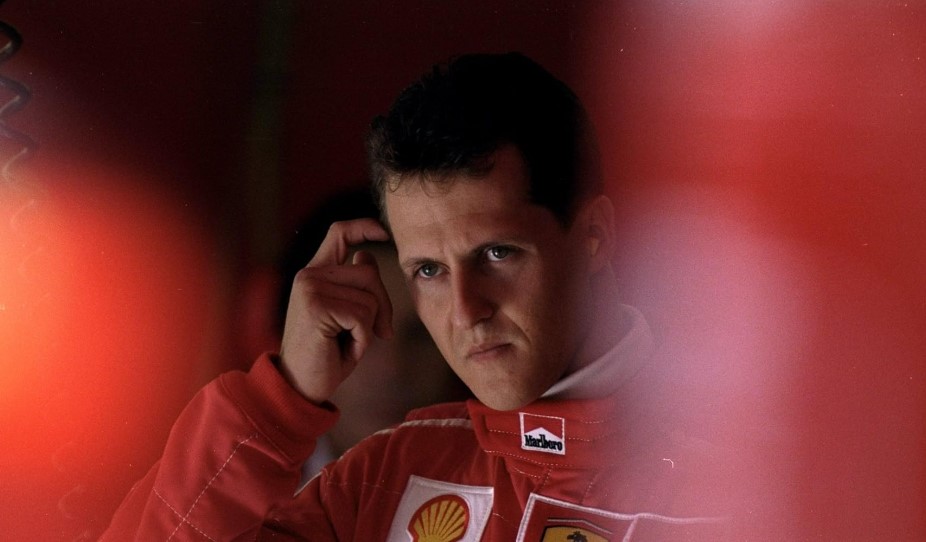
When Ayrton Senna, the legendary Brazilian driver, tragically passed away on May 1, 1994, Schumacher was devastated. The loss was crushing for the entire Formula 1 community, but for Schumacher, it was much more. Just a day before Senna’s fatal accident, Roland Ratzenberger, another driver, had also died at Imola, casting a dark shadow over the sport.
In the wake of this tragic turn of events, Schumacher found himself at a crossroad, grappling with the very heart of his career. The gravity of the situation hung over him like a dark cloud, and in an interview with Formula1.com (via Sports Rush), he admitted to reflecting deeply on the fatalities and wrestling with his own place in the sport.
The emotional toll was immense. Schumacher did not attend Senna’s funeral, not out of lack of respect, but because he was simply overwhelmed. He said that he didn’t want to mourn in public:
I visited Ayrton’s grave later with Corinna [his wife].
The grief, too raw to be shared with the world, was something he had to face privately, and the absence from the funeral was his way of processing that sorrow on his own terms.
Ayrton Senna’s Funeral: A Nation in Mourning
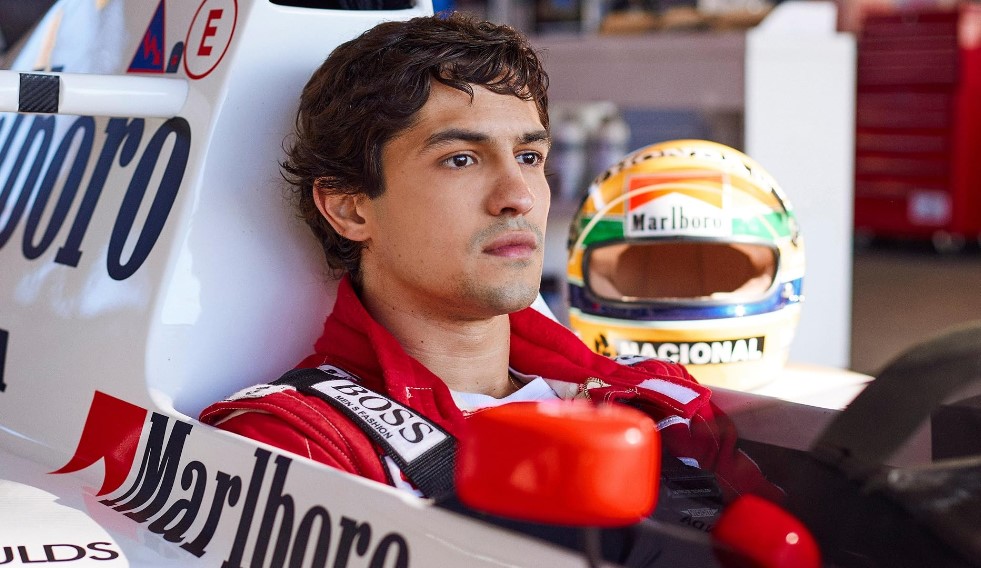
Ayrton Senna’s funeral on May 5, 1994, was one of the largest in history, with an estimated three million people lining the streets of São Paulo to say their final goodbyes (see LA Times). The atmosphere was one of national mourning, as Brazil had lost a hero. Prominent figures from the motorsport world, including Alain Prost, Damon Hill, Gerhard Berger, and Jackie Stewart, were in attendance, all paying their respects to a man who had meant so much to the sport and to them personally.
Yet, amid this collective grief, Michael Schumacher was absent. While the media may have speculated, the reasons behind his absence were deeply personal (as discussed above).
Ayrton Senna’s Final Resting Place: Morumbi Cemetery
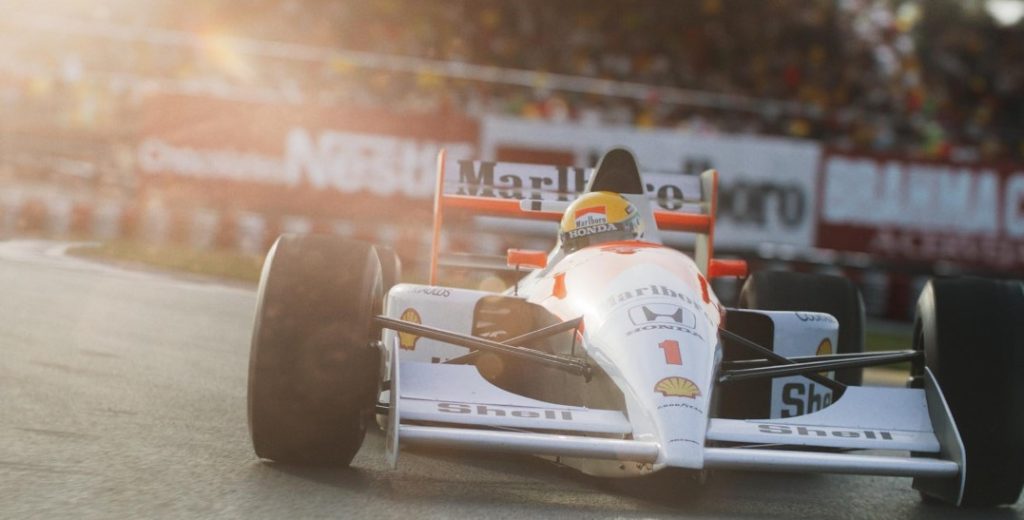
Ayrton Senna’s final resting place is at the Morumbi Cemetery in São Paulo. His grave is simple yet profound, marked with the epitaph: “Nada pode me separar do amor de Deus” [“Nothing can separate me from the love of God”]. This inscription speaks to Senna’s deep faith and his lasting impact not only in Brazil but worldwide.
His memory lives on through the Instituto Ayrton Senna, a foundation dedicated to supporting education for underprivileged children in Brazil. His legacy continues to inspire both on and off the track, ensuring that the ideals he stood for—passion, integrity, and an unwavering commitment to excellence—will never be forgotten.
Celebrating Ayrton Senna’s Legacy With The Netflix Documentary
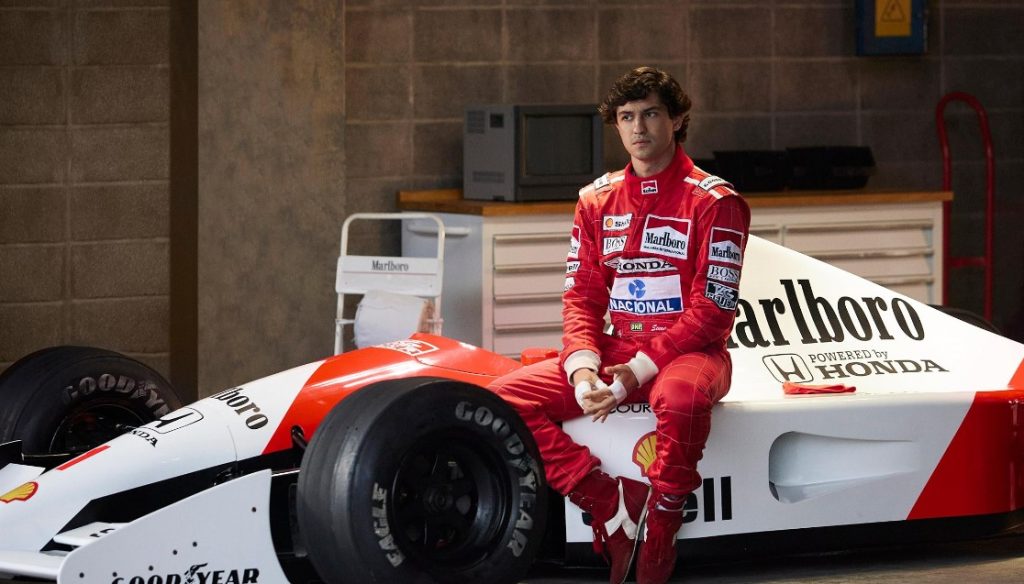
Ayrton Senna’s story is captured in the documentary Senna, available on Netflix. The film takes you through his journey in Formula One, from his debut in the 1984 Brazilian Grand Prix to his tragic death at the 1994 San Marino Grand Prix, with a particular focus on his fierce rivalry with Alain Prost. Rather than relying on typical narration or talking-head interviews, the documentary paints its picture using archival footage, racetrack recordings, voiceovers, and personal home videos from the Senna family.
Critics hailed the film for its powerful portrayal of Senna, and at the 65th British Academy Film Awards, it scooped up two BAFTAs for Best Documentary and Best Editing, along with a nomination for Outstanding British Film. For F1 enthusiasts, Senna is not just a recounting of his career but a heartfelt homage to the legend who forever changed the sport.

